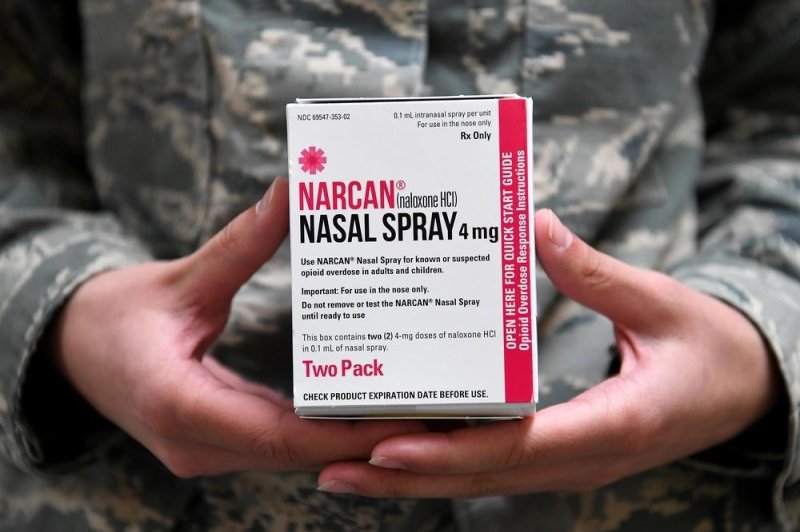The Biden administration said Friday it wants to make anti-overdose drugs such as Narcan "as readily available as other health-and-safety equipment like carbon monoxide detectors" in housing settings. Photo by Staff Sgt. Amber Mullen-Schweitzer/U.S. Dept. of Defense
Dec. 8 (UPI) -- The Biden administration on Friday urged local housing providers and community development groups across the country to help the federal government expand access to naloxone and other opioid overdose drugs.
Such overdose reversal medications, which can be effective against fentanyl and other synthetic opioids, are already available in schools, libraries and other community institutions, and they should similarly be kept on hand in public housing settings, according to the administration.
Especially with the naloxone drug Narcan becoming available for over-the-counter purchase for the first time ever earlier this fall, the White House says it is determined to persuade local public housing agencies and groups that deal with homelessness to keep supplies of the drug on hand.
"Many overdoses happen in the home, and providing access to an effective and easy-to-use medication that can reverse an overdose is just common sense," Assistant Health and Human Services Secretary for Housing Julia Gordon said in a statement. "We urge our assisted housing property owners and managers to make this life-saving medication readily available to their residents and guests."
Ensuring the "broad distribution" of the anti-overdose drugs in housing-related settings is an important step to preventing fatal overdoses, added Miriam E. Delphin-Rittmon, HHS assistant secretary for mental health and substance use.
"These medications should be as readily available as other health-and-safety equipment like carbon monoxide detectors, fire extinguishers, and defibrillators," she said.
The push to get housing providers on board with the effort is part of President Joe Biden's "Unity Agenda," in which he has pledged to address the 100,000 deaths from drug overdoses in 2022.
In August, the administration announced a $450 million funding package earmarked for substance abuse prevention, treatment and recovery support services. It included the Centers of Disease Control and Prevention awarding $279 million to 49 states, the District of Columbia and 40 local health departments to help stop overdoses.















